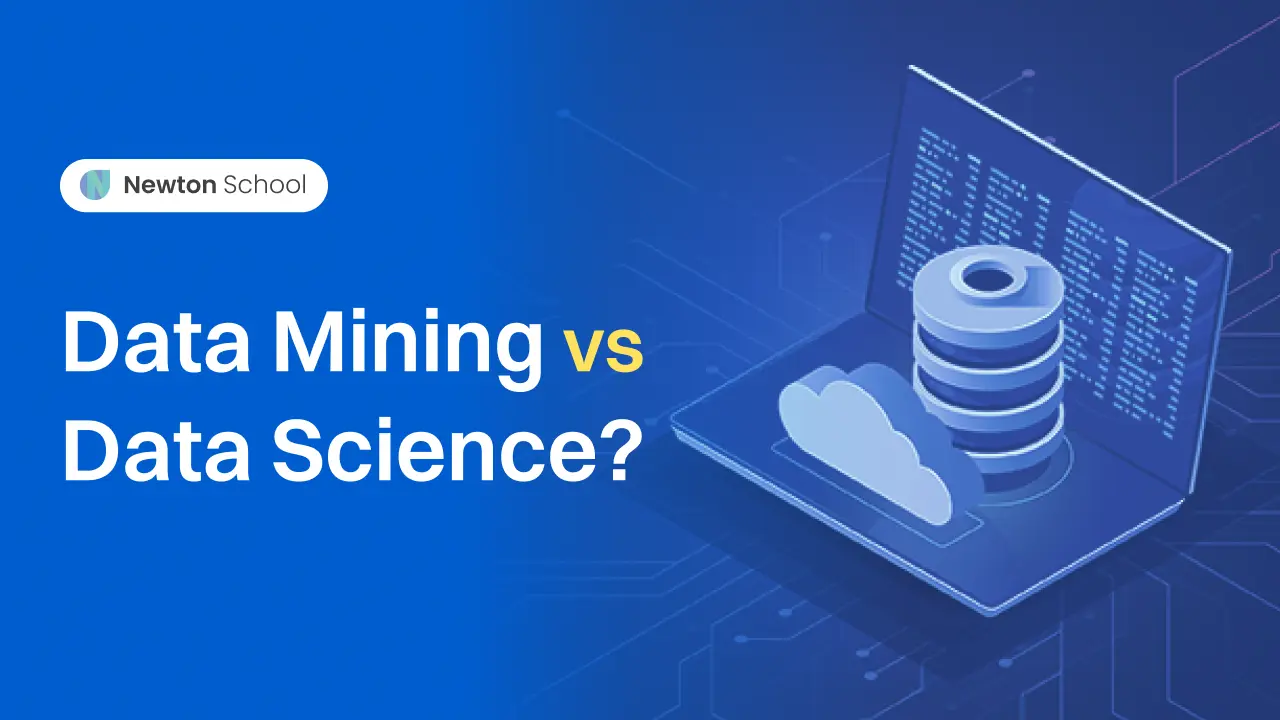
The global data science platform market is expected to grow at a 30% CAGR annually, from $37.9 billion in 2019 to $140.9 billion by 2024. Data science is one of the most promising fields of this century, but it's continuously changing, making it hard for freshers to keep up with the latest trends and technologies. The market for data scientists is highly competitive, making it hard to break into the industry as a fresher if you don't have proper guidance. Even a single lousy recruit can hurt an organisation's productivity. Thus, companies are particularly careful when working with computer science freshers with no experience. With the help of our comprehensive data science recruiting guide, you will learn what it takes to get hired as a data scientist at a top company. We will delve deep into the subject, exploring topics like what the role entails, the skills required, and even interview preparation.
What Does A Data Scientist Do?
Data collection, cleaning, organising, and analysing data are all part of the data science process. The objective here is to construct a data model that can use the data to predict upcoming events and make predictions about user actions and patterns. Data scientists employ various methods to find answers to challenging problems, including statistical analysis, mathematical algorithms, and machine learning. You may break it down into five main phases: data capture, data cleaning, data processing, data analysis, and data visualisation.
Here are some of the skills you might want to master to secure a job as a data scientist:
- Software programming: The core of data science is computer programming. Essential Programming Skills for Data Science compiles the building blocks for data scientists to go from raw data to useful insights. While there is no hard and fast rule concerning which programming language to use, Python and R are the most popular options.
- Database management systems: A database management system is a suite of tools you may use to modify, index, and otherwise work with a database. When an application requests data, the DBMS honours it and directs the operating system to retrieve the specified information. A database management system (DBMS) allows for storing and retrieving data in large systems.
- Data visualisation: Data visualisation is a graphical depiction of the results of the data analysis. Visualisations efficiently communicate and guide the decision-makers to insights.
- Machine learning: While it is not an explicit requirement, some data science projects use machine learning models to make predictions. Some companies look exclusively for data scientists who are proficient at machine learning.
- Microsoft Excel: Microsoft Excel is an important skill for any data scientist. Learning Excel can help you use various data modelling and visualisation tools to gain new insights.
- Probability, Statistics, and Calculus: Inference, modelling, and forecasting all play significant roles in the field of Data Science. Assumptions can be made for further investigation with probability and statistical approaches. The theory of probability is crucial to the practice of statistics. Knowledge of multivariable calculus can also prove to be beneficial in data science.
How To Interview A Data Scientist: Interview Prep
The data science field has a very steep learning curve. Unless you know precisely where to look, it can be tough to break into the industry as a fresher. A data scientist needs real-life experience with various tools and technology stacks, not just project-specific know-how. The ideal candidate for the role would be naturally inquisitive and have an innate sense of using data to solve problems. Possessing a statistical mindset when tackling a problem may also be useful. While it's impossible to know what to expect while organisations are data science recruiting, there are certain things you can do to prepare. There are various things you can do to guarantee your readiness. Here are some tips you can use to improve your chances of getting hired in a data science role:
- Preparing an Exceptional Resume
- Preparing for Technical Aptitude Tests
- Mock Interviews
- Company-Specific Questions
Questions to ask a Data Scientist
Before we get into the questions, there are some things you need to know. Given the kind of role a data scientist plays, asking them questions that can accurately judge the way they think is significantly more critical than considering whether their answer is correct or not. The interviewer might try to pique your curiosity by asking you something you're unfamiliar with to test how you handle things under pressure. Here are some of the questions frequently asked during data science interviews:
- What is the difference between data analytics and data science?
- List down the conditions for Overfitting and Underfitting.
- Differentiate between the long and wide format data.
- What does it mean when the p-values are high and low?
- Define and explain selection bias?
How Much Do Data Scientists Make?
The high salaries of data scientists reflect the rapid pace of change in their industry. Data scientists are expected to take on increasingly significant tasks as the discipline develops. Data scientists are in high demand worldwide since modern businesses rely heavily on information obtained via data collection and analysis. There is a sizeable market for data scientists in India, as evident from the high data scientist salaries in the country. According to AmbitionBox, an entry-level data scientist can make anywhere between Rs. 6,00,000 and Rs. 10,00,000. While that is great, senior data scientists can earn upwards of Rs. 20,00,000.
To sum it up, data science is an exciting field with a ton of potential. If you wish to break into the industry as a fresher, our advice and tips are something you can rely on, given our experience with helping numerous freshers get hired in a data science role. While getting hired is not exactly tough, having the right guidance is the key to making it in the industry.




















